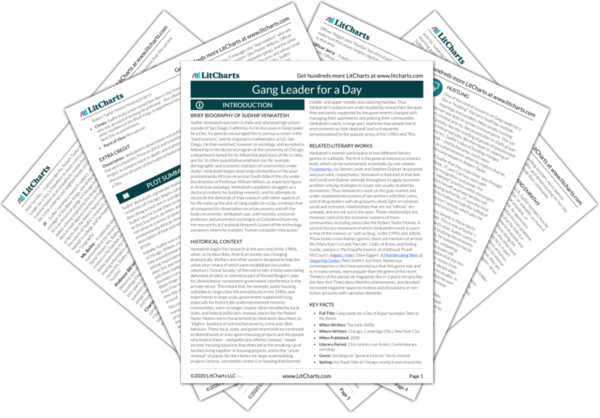Johnny has made an “arrangement” with the BKs in two senses. First, he has permitted certain BKs to receive certain products at a discount – that is, he has acknowledged that the BKs are the dominant, government-like authority in the area. But he also refuses service to other customers, some BKs, who seem to damage the store’s reputation, or make it less hospitable to other customers. Thus Johnny is caught between needing the BKs on the one hand, and feeling that certain BK members make his business that much harder to run.
